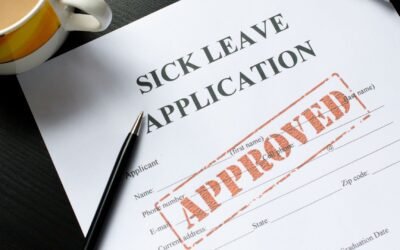Day One Flex is coming – here’s what you need to know
The UK Government announced in December 2022 that millions of workers will be able to request flexible working from day one of employment. At present, employees must wait until they’ve been in a job for six months (26 weeks) before they can make a flexible working request. However, this important change in law will allow millions of people to enjoy the benefits of flexible working from the start of their employment.
The UK Government has committed to:
• Removing the 26-week qualifying period before employees can request flexible working, making it a day-one right.
• Requirement of employers to consult with their employees, as a means of exploring the available options, before rejecting a flexible working request.
• Allowing employees to make two flexible working requests in any 12-month period.
• Requirement of employers to respond to requests within two months, down from three.
• Removing the requirement for employees to set out how the effects of their flexible working request might be dealt with by their employer.
For expert advice on negotiating flexible working requests, contact The HR Team for practical help and support.
Sexual Harassment in the Workplace
The UK government is supporting a private member’s bill to bring back employers’ liability for harassment of employees by third parties at work, as well as introduce a new duty to prevent workplace sexual harassment.
The EHRC is also working on a new Code of Practice regarding sexual harassment. It will demand more from employers to prevent workplace harassment.
These moves are intended to place responsibility on employers to take reasonable steps to prevent sexual harassment and protect their staff – rather than simply being liable after the event.
In order for an employer to defend a claim of vicarious liability in a sexual harassment case, they will need to demonstrate that they took all reasonably practicable steps to prevent it in the first place. Namely, by having a clear and up-to-date Sexual Harassment Policy which has been made available to all staff. Also, the provision of training to all employees on how to behave in the workplace and how to manage unwelcome attention from colleagues and/or clients and customers.
The HR Team can provide in-house or online training for all staff on Sexual Harassment in the Workplace and other such topics. Contact The HR Team for further details.
Extended redundancy protection – maternity, adoption and shared parental leave
Pregnant women and new parents will receive greater protection from redundancy under new legislation presently going through parliament. Under current rules, before offering redundancy to an employee on maternity leave, shared parental leave or adoption leave, employers have an obligation to offer them a suitable alternative vacancy where one exists.
The Pregnancy and Maternity Discrimination Bill, introduced by Dan Jarvis MP and backed by the government, will enable this redundancy protection to be extended so it applies to pregnant women as well as new parents returning to work from a relevant form of leave. This will help shield new parents and expectant mothers from workplace discrimination, offering them greater job security at an important time in their lives.
The proposal is to cover any period of pregnancy and the 6 months immediately following a return to work after family leave. During that period, protected employees can be selected for redundancy but will have priority over other employees in respect of any suitable alternative vacancies.
If you are planning a Redundancy & Restructure, particularly if you currently employ expectant mothers or new parents, contact The HR Team for expert guidance at every stage of the process.
Hospitality – Fair Distribution of Tips
A new law is expected this year dealing with the fair distribution of tips and the introduction of a new statutory Code of Practice on tipping. A private member’s bill intended to ensure hospitality staff receive all the money left to them in tips by customers is closer to becoming law after clearing the Commons.
For more information on Tip Distribution see the link below –
Big Hospitality Tip Article click here…
Statutory Acas Code of Practice on fire and rehire
A new ACAS Code of Practice on “fire and rehire” should appear early this year. Dismissal and re-engagement, commonly known as ‘fire and rehire’, is a practice employers adopt when making changes to terms and conditions of employment. Employees who refuse to agree to proposed new terms are dismissed and re-engaged on different, often less generous, terms.
Firing and rehiring is not unlawful, but the tactic is controversial and might expose employers to statutory (including unfair dismissal) and contractual claims. Employers may also have collective consultation obligations if large numbers of employees are involved.
Lawfully terminating employment and re-engaging on new terms when employers need to act quickly for commercial reasons is different to intimidating employees, often low-paid, to pressurise them to sign up to less favourable terms. Either way, the practice can seem aggressive.
In November 2021, ACAS published non-statutory guidance on the practice, saying that firing and rehiring should only be used as a last resort. In addition to opening employers up to legal claims and industrial action, ACAS advises that the practice of firing and rehiring can damage staff morale, trust, productivity and working relations.
At the end of 2022. the government announced that a new statutory code of practice would be published on the use of ‘fire and rehire’ practices.
The government says the code will detail how businesses must hold fair, transparent and meaningful consultations on proposed changes to employment terms. It will also include some practical steps employers should follow. Tribunals will need to take the code into account when dealing with unfair dismissal claims; they will be able to apply an uplift of up to 25 percent of an employee’s compensation where an employer unreasonably fails to follow it.
The new statutory code will not prohibit the practice of firing and rehiring. The ACAS guidance published in November 2021 already gives employers tips on how to work with staff and unions when negotiating changes to terms of employment. It is therefore questionable as to whether the new code will lead to significant changes in the way employers will approach firing and rehiring. Limiting reputational damage, keeping hold of valuable staff and swerving industrial action are probably greater incentives for finding agreement with staff and unions than compliance with the code.
At the moment the government has not set a date for the introduction of the new code.
For expert advice on the practice of ‘fire & rehire’, contact The HR Team today.
Retained EU Law (Revocation and Reform) Bill
This Bill will impact some of the key components of UK employment law including the Working Time Regulations, TUPE, the Agency Workers Regulations, the Maternity and Parental Leave Regulations.
It includes a “sunset clause” meaning that, at the end of 2023, many laws (introduced as a result of our EU membership) will disappear unless they are confirmed or replaced with something else.
The 2023 deadline may slip but, in any event, we can expect to see a lot of activity as the Government tries to work out what to keep, what to water down, and what to remove completely.
This is a hugely significant piece of legislation and could lead to the biggest changes in Employment law in decades – we will keep you updated!
For expert advice on all your HR requirements contact The HR Team today.










